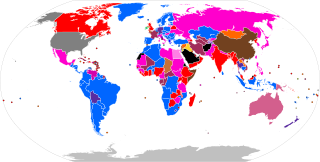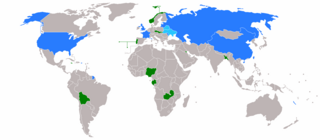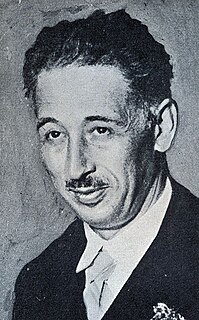
Elections in Angola take place within the framework of a multi-party democracy and a presidential system. The National Assembly is directly elected by voters, whilst the leader of the largest party or coalition in the National Assembly automatically becomes President. The country is currently a one-party dominant state, with the MPLA as the dominant party.

Elections in Benin take place within the framework of a multi-party democracy and a presidential system. Both the President and the National Assembly are directly elected by voters, with elections organised by the Autonomous National Electoral Commission (CENA).

Elections in Guinea-Bissau take place within the framework of a multi-party democracy and a semi-presidential system. Both the President and the National People's Assembly are directly elected by voters.

Elections in Gabon take place within the framework of a presidential multi-party democracy with the Gabonese Democratic Party, in power since independence, as the dominant party. The President and National Assembly are directly elected, whilst the Senate is indirectly elected.

Elections in Niger take place within the framework of a semi-presidential system. The President and National Assembly are elected by the public, with elections organised by the Independent National Electoral Commission (CENI).

An electoral system is a set of rules that determine how elections and referendums are conducted and how their results are determined. Political electoral systems are organized by governments, while non-political elections may take place in business, non-profit organisations and informal organisations.

The 2013 United Nations Security Council election was held on 17 October 2013 during the 68th session of the United Nations General Assembly, held at United Nations Headquarters in New York City. The Assembly elected Chad, Chile, Lithuania, Nigeria, and Saudi Arabia for five non-permanent seats on the UN Security Council for two-year mandates commencing on 1 January 2014. The following day, Saudi Arabia announced that it was declining the seat, accusing UNSC of using "double standards" and being unable to resolve important issues in the Middle East. A second round of voting therefore took place on 6 December, in which Jordan was elected to the Council in lieu of Saudi Arabia.

The 1996 United Nations Security Council election was held on 21 October 1996 at United Nations Headquarters in New York City during the 51st session of the United Nations General Assembly. The General Assembly elected five non-permanent members of the UN Security Council for two-year terms commencing on 1 January 1997.

Parliamentary elections were held in Andorra on 9 December 1981, with a second round of voting on 16 December. Local elections were held on the same day. Following the elections, Òscar Ribas Reig became the country's first Prime Minister.

Parliamentary elections were held in Andorra on 12 and 19 December 1985. As political parties were not legalised until 1993, all candidates ran as independents. Following the election, Josep Pintat-Solans remained Prime Minister.

Parliamentary elections were held in Andorra on 5 April 1992, with a second round of voting on 12 April. Following the elections, Òscar Ribas Reig remained Prime Minister.

The 1978 United Nations Security Council election was held on 10 November 1978 during the Thirty-third session of the United Nations General Assembly, held at United Nations Headquarters in New York City. The General Assembly elected Bangladesh, Jamaica, Norway, Portugal, and Zambia, as the five new non-permanent members of the UN Security Council for two-year mandates commencing on 1 January 1979.

The 1977 United Nations Security Council election was held on 24 October 1977 during the Thirty-second session of the United Nations General Assembly, held at United Nations Headquarters in New York City. The General Assembly elected Bolivia, Czechoslovakia, Gabon, Kuwait, and Nigeria, as the five new non-permanent members of the UN Security Council for two-year mandates commencing on 1 January 1978.

The 2008 San Diego City Council election occurred on November 4, 2008. The primary election was held on June 5, 2008. Four of the eight seats of the San Diego City Council were contested. This was the last election for the odd-numbered districts using the boundaries created by the 2000 Redistricting Committee. No incumbent council members were eligible to run for reelection due to term limits.

Elections to the General Council were held in French Dahomey in December 1946 and 5 January 1947. The result was a victory for the Dahomeyan Progressive Union, which won 20 of the 30 seats.

General Council elections were held in French Cameroons on 22 December 1946.

General Council elections were held in Chad on 15 December 1946, with a second round of voting on 12 January 1947.

General Council elections were held in Niger on 15 December 1946, with a second round of voting on 5 January 1947. The General Council had been established by decree on 25 October 1946.

General Council elections were held in French Sudan in December 1946 and 5 January 1947.

The 1934 Catalan local elections were held on 14 January to elect the municipal councils in all the 1,029 municipalities of Catalonia. These elections were only held in Catalonia, as the 1932 Statute of Autonomy devolved the competences on local elections to the Generalitat de Catalunya. These were the first and only election to be organised by the Catalan Government, since this administration was suppressed by the Dictatorship of Francisco Franco in 1939, after winning the Spanish Civil War. The following free local elections weren't held until 1979, during the transition to democracy.

















